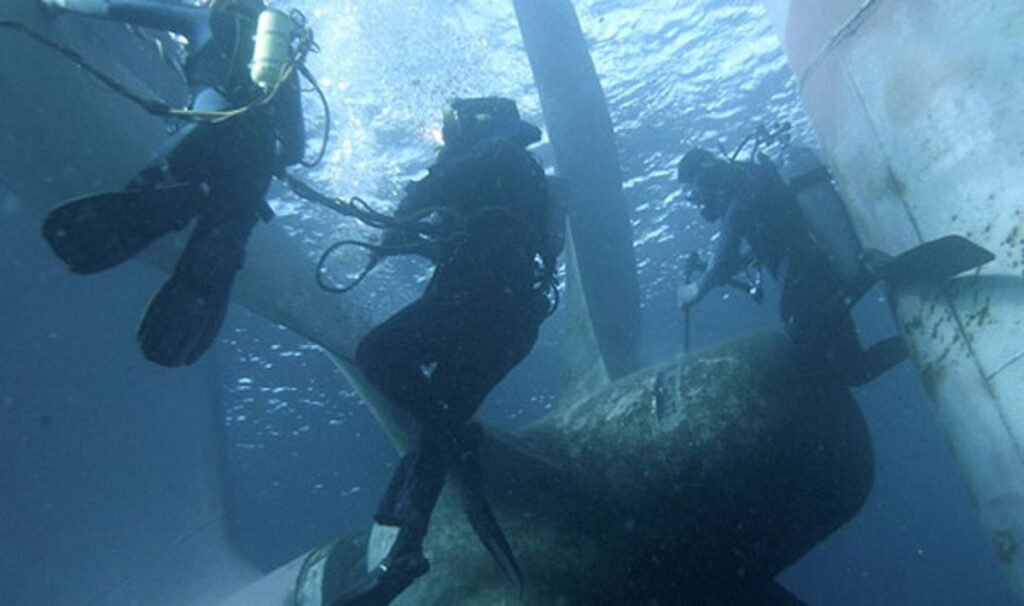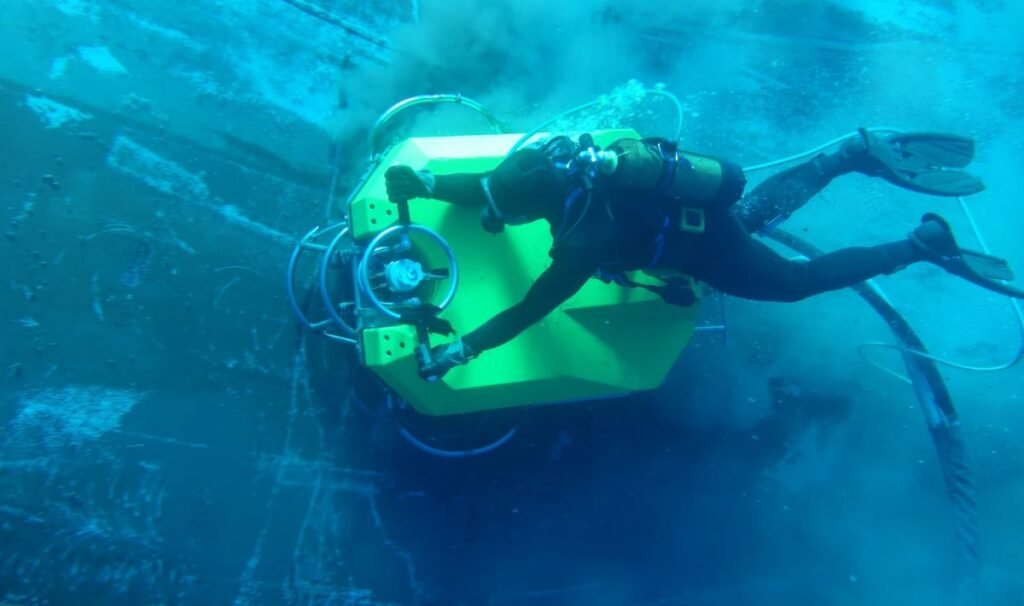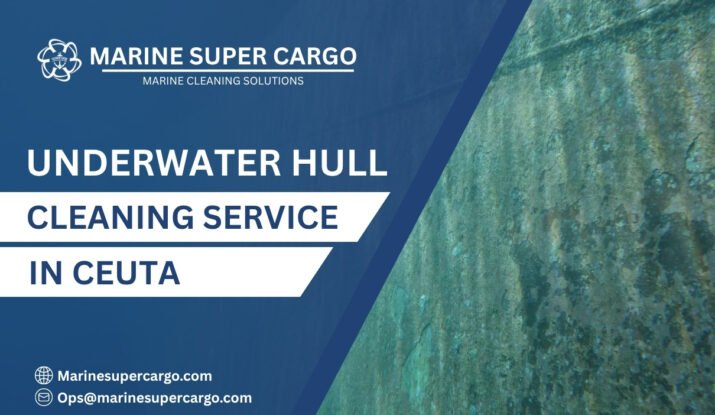If you sail into Ceuta’s bustling harbor—whether as a merchant, captain, or yacht owner—you know the sea below can be both ally and adversary. The secret to a smooth, efficient journey? Keeping your hull as clean and streamlined as the day your vessel was launched. Let’s dive deep into the world of underwater hull cleaning in Ceuta and find out how a clean hull isn’t just a technicality—it’s a game-changer for performance, savings, and sustainability.
What is Underwater Hull Cleaning in Ceuta?
Look below the waterline and you’ll discover your vessel’s biggest challenge: a fast-growing jungle of algae, barnacles, and slimy biofilms, known as marine fouling. Even a thin film can add serious drag, forcing engines to burn extra fuel and undermining your speed. Underwater hull cleaning is the professional process of removing this growth—all while your vessel stays afloat. Trained divers or robots glide along the hull, scrubbing away fouling to return your ship to peak hydrodynamic condition.
In the busy port of Ceuta, with frequent Atlantic and Mediterranean traffic, this hull maintenance is less a luxury and more a necessity. Left unchecked, fouling drains profits and can even endanger compliance with environmental laws.

The Unique Maritime Environment of Underwater Hull Cleaning in Ceuta
Located between two bays, Ceuta’s strait-side position and Mediterranean climate create ideal conditions for rapid marine growth. Nutrient-rich waters and busy port activity make hull fouling a common challenge. Despite strong water renewal, sediment and pollutants can accumulate, requiring frequent inspections and cleaning. Operators must follow IMO guidelines to maintain compliance and protect the marine environment.
Why Underwater Hull Cleaning in Ceuta is Essential
- Fuel Economy and Navigational Ease: Removing drag means more knots per litre and less strain on engines. Evidence from Ceuta and neighboring ports shows regular cleaning can slash fuel bills by 10–15%—a huge saving for any vessel owner.
- Hull Health and Environmental Benefits: Fouling isn’t just unsightly. It damages anti-fouling paint, encourages corrosion, and risks moving invasive species between ecosystems. Professional cleaning preserves hull coatings and protects the region’s prized marine environment.
- Smoother Compliance: Ceuta, like many Spanish and EU ports, enforces environmental best practices. Staying in line with regulations means safer, greener operations and access to vital port services.
How Underwater Hull Cleaning in Ceuta is Done
Ceuta’s providers offer a mix of diver-led and robotic/remote options:
- Divers: Skilled technicians use a variety of tools—brushes, soft sponges, scrapers, and water jets—to remove fouling without harming hull coatings. Pre- and post-cleaning inspections via underwater cameras are standard to ensure completeness and safety.
- Robotic and Mechanical Methods: For larger or time-sensitive jobs, robots with rotating brushes and suction systems clean hulls while capturing waste, operating day or night, and often during bunkering operations.
- Safety First: Strict protocols ensure diver and crew safety, with routes and activities carefully planned depending on water clarity, current, and port operations. Divers coordinate with port control to avoid traffic and other hazards.
Environmental Regulations and Best Practices
Ceuta’s hull cleaning practices adhere to both local port bylaws and international best-practice frameworks. Here’s what that means for you:
- Eco-Friendly Capture and Debris Management: No fouling or paint chips are allowed to escape into the bay. Instead, waste is collected, brought ashore, and disposed of properly—a must for keeping Ceuta’s rich marine life safe.
- Authorized Operators: Only certified businesses are allowed to perform underwater hull cleaning in Ceuta’s port. Service providers must register, use approved methods/equipment, and document each job with photographic records and detailed logs.
- Compliance with Paint and Coatings Laws: Cleaning is prohibited on vessels with banned coatings (like tributyltin paints). For vessels with modern anti-fouling paints, soft scrubbers, and gentle equipment, protect coatings.
- Regular Inspections: The port and cleaning companies keep logs, and authorities may inspect after cleaning to ensure compliance and zero pollution.
How to Choose a Service of Underwater Hull Cleaning in Ceuta
Choosing the right provider can mean the difference between a cost-saving, eco-friendly job and regulatory headaches. Here’s your checklist:
- Certifications: Are they authorized by the Ceuta Port Authority? Do they comply with relevant Spanish/EU environmental laws?
- Equipment: Do they use a diver-led, robotic, or a combination approach? Are their techniques suitable for your vessel?
- Reporting: Will you get before-and-after photos/videos, detailed logs, and certificates of completion for your records?
- Local Reputation: Ask for references and look for customer feedback from other Ceuta-based operators.
Cost Considerations for Hull Cleaning in Ceuta
Factors impacting costs include:
- Vessel Size and Level of Fouling: Bigger ships and heavier growth require more hours and tech.
- Method: Robotic and mechanical cleaning can be costlier up front, but reduce downtime and improve compliance.
- Frequency: Routine, scheduled hull cleaning costs less over time than emergency or neglected jobs.
- Extra Services: Inspections, propeller polishing, or emergency repairs can add to the bill.
Value Tips:
Trustworthy providers offer itemized, transparent quotes. Beware suspiciously cheap options that may skip environmental best practices or proper documentation.
Post-Cleaning Maintenance Tips
Keep your hull in top condition by:
- Scheduling follow-up inspections: Every 3–6 months, or more often in high-fouling conditions.
- Maintaining anti-fouling coatings: Consult with your provider to choose the right system for Ceuta’s waters and traffic.
- Quick DIY spot-checks: Visual checks catch small problems before they become big ones.
- Keeping detailed records: Maintenance logs help track hull condition, schedule future cleanings, and may even benefit insurance or resale value.

Common Myths and Misunderstandings
- “Hull cleaning always damages paint.” Not true! Professional methods are tailored to protect coatings, extending their life.
- “You must dry-dock for a proper cleaning.” Modern in-water methods are effective and efficient, with minimal disruption.
- “Cleaning pollutes the sea.” With waste-capture tech and eco-regulations, providers in Ceuta keep pollution to a minimum.
- “Any diver can do it.” Only certified, authorized professionals are permitted in the port of Ceuta.
Case Studies and Success Stories from Ceuta
Shipping companies in the region have reported dramatic fuel savings—12–15% after transitioning to scheduled underwater hull cleaning. Local ferries saw smoother, faster crossings, while shipping agents enjoyed easier compliance and safer voyages. One yacht captain even described spot-cleaning his hull before a race, immediately noticing tighter handling and a crucial edge over the competition.
Conclusion: Invest in Underwater Hull Cleaning in Ceuta
The real unsung hero of your vessel isn’t a shiny paint job—it’s a sleek, clean hull. Underwater hull cleaning in Ceuta is not just about avoiding fines or passing inspections; it’s your key to efficiency, cost savings, and environmental stewardship. With expert local providers, strict regulations, and a port committed to healthy seas, you’ll enjoy every nautical mile in peak condition.
FAQ:
Q1. How often should I schedule underwater hull cleaning in Ceuta?
Every 3–6 months is typical, but busy vessels or those operating in high-fouling conditions may need more frequent service.
Q2. Is underwater hull cleaning in Ceuta environmentally safe?
Yes, when performed by certified providers using waste-capture technology and non-toxic methods, in compliance with port and EU regulations.
Q3. Do I need to dry dock my vessel for hull cleaning in Ceuta?
No, most cleaning occurs underwater while the vessel remains fully operational, minimizing downtime.
Q4. What methods are used for hull cleaning in Ceuta?
Both diver-led cleaning and robotic/mechanical systems are used, applying soft brushes or advanced scrubbers depending on your hull and paint.
Q5. What should I look for in a cleaning provider in Ceuta?
Look for certifications, local expertise, eco-friendly practices, transparent pricing, and strong references from other vessel owners.


